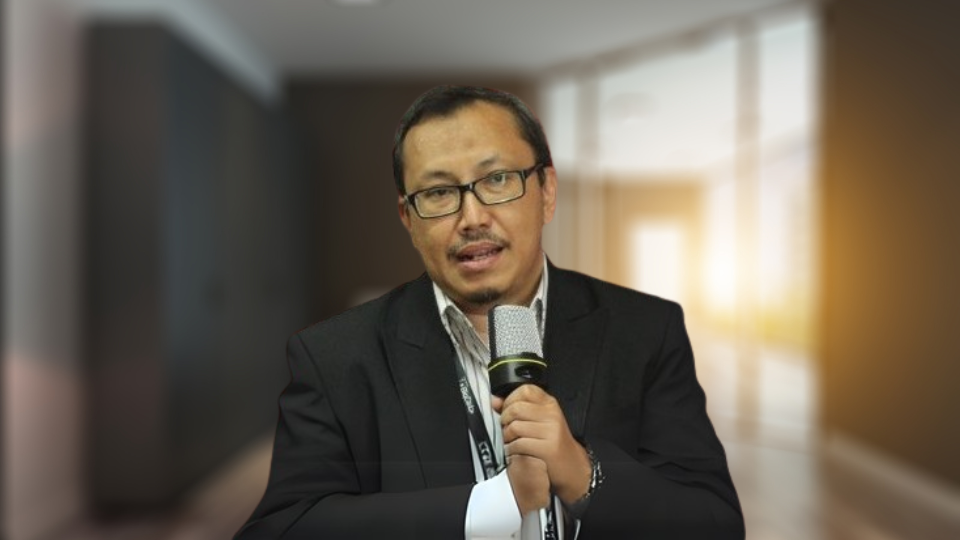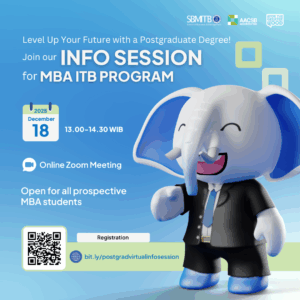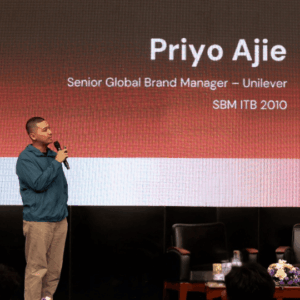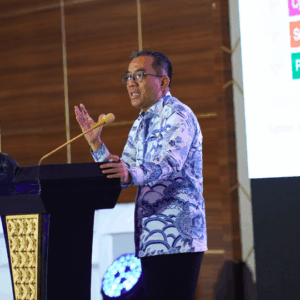Digital transformation is not merely about technology but about redefining workflows, processes, and customer experiences. At Bahasa Kita, digital transformation reshapes organizational operations by integrating technology into every aspect of the business. This shift is reflected in the development of advanced tools, including speech recognition, text-to-speech conversion, and real-time translation.
Oskar Riandi, CEO of Bahasa Kita, highlighted these points during a guest lecture on Digital Business and Transformation for Executive MBA program students at the SBM ITB on Saturday (11/23). With over 25 years of experience in speech and natural language processing (NLP) technology, Oskar has spearheaded revolutionary innovations tailored to the Indonesian language. His company, Bahasa Kita, develops AI-driven tools that overcome communication barriers and enhance user experiences.
In his lecture, Oskar discussed key themes such as digital transformation, digital business, and innovation, offering students insights into a technology-driven future full of opportunities. He provided examples of how Bahasa Kita leverages digital transformation. For instance, Artificial Intelligence (AI) is utilized to automate transcription and translation with high precision. Cloud computing enables the secure and efficient storage and processing of vast amounts of linguistic data, while big data analytics delivers valuable insights to improve product performance and user satisfaction.
According to Oskar, Bahasa Kita’s digital transformation ensures solutions that address current needs and anticipate future communication technology challenges.
Oskar emphasized that digital businesses must leverage technology to streamline operations and enhance customer experiences. For Bahasa Kita, this means incorporating cutting-edge AI into its products to serve a diverse clientele, including government agencies, banks, media outlets, and customer service providers.
Bahasa Kita’s digital transformation, Oskar said, ensures solutions that meet current needs and anticipate future communication technology challenges.
According to Oskar, the implementation of digital business has helped Bahasa Kita achieve scalability, which is adjusting services quickly to meet increasing customer demands; flexibility, which is innovating products to meet various user needs, such as real-time text-to-speech for live events; and achieving data-driven decisions, using analytics to improve products and optimize customer engagement.
Oskar stressed that adopting digital business practices is crucial to competitiveness in a rapidly evolving market. He attributed Bahasa Kita’s success to its unique combination of technological expertise and cultural relevance. With a mission to create the best speech processing systems for Bahasa Indonesia, the company develops products that bridge communication gaps and promote inclusivity.
During the lecture, Oskar introduced some of his company’s flagship innovations: Speech-to-Speech Translation, allowing users to speak in one language and be understood in another, fostering seamless cross-cultural communication; and Automatic Transcription, offering a high-precision tool for government institutions and the media, such as in presidential debates.
The guest lecture left a lasting impression on the students, inspiring them to explore how digital transformation, business practices, and innovation can redefine industries. As demonstrated by Bahasa Kita, startups that embrace these principles survive and thrive amidst fierce competition. This session served as a reminder that innovation is not just a buzzword but a powerful catalyst for creating meaningful societal impact.






